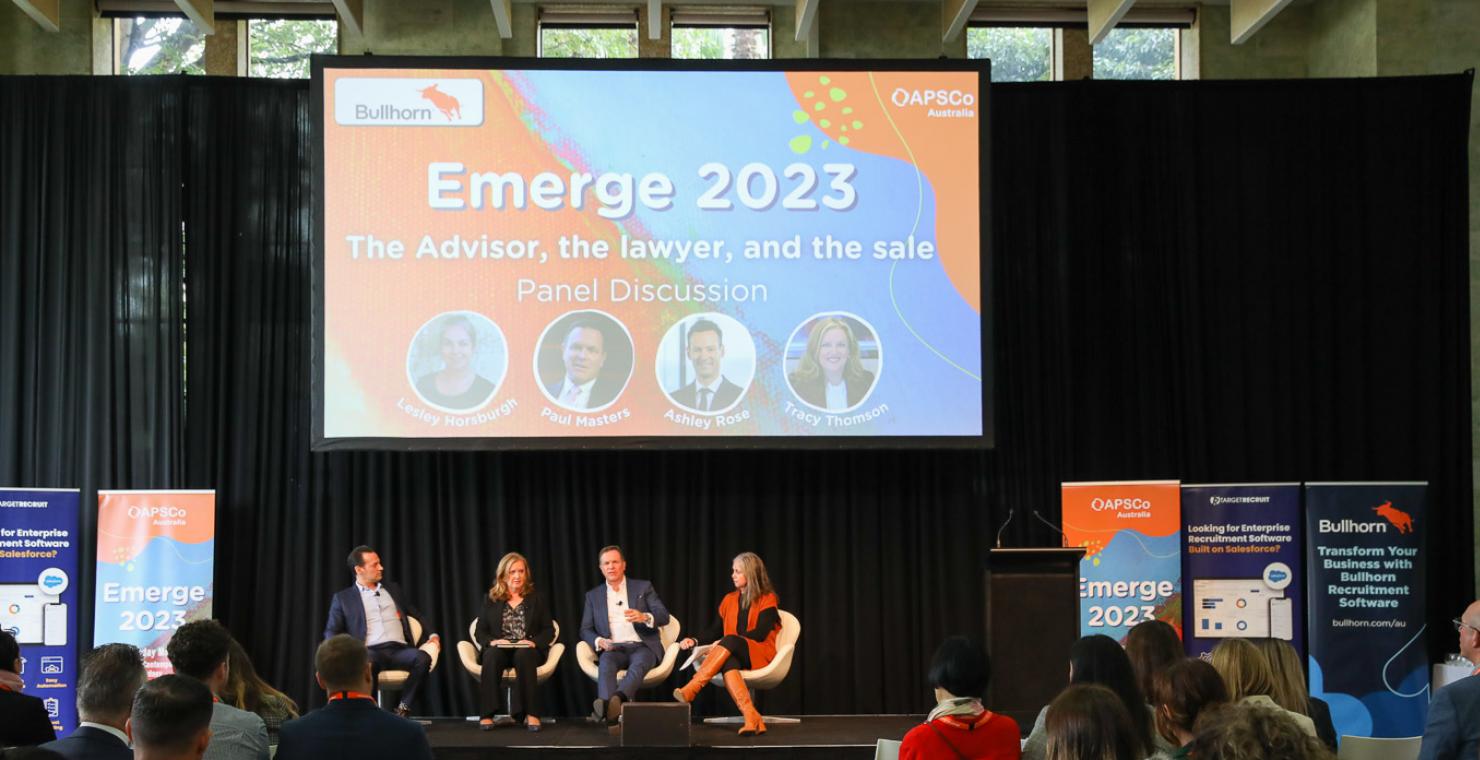
Ensure businesses are "exit ready" prior to seeking a buyer, say M&A experts
This article first appeared in Shortlist. It is reproduced here with permission.
Business owners who are considering selling their company first need to become "exit ready" by ensuring their accounting, tax, and employment law compliance is completely up to date, acquisition experts say.
Discussing mergers and acquisitions as a part of a panel at APSCo's Emerge 2023 conference last week, Squire Patton Boggs partner Ashley Rose points out that businesses now face more compliance issues than ever, including data and privacy breaches, greenwashing, and reputational damage.
"The reaction from everything that's happened in the last five-to-six years is that we're really in this high regulatory environment. That means ASIC, ACCC and other regulatory agencies are really cracking down and then looking to make a name for themselves and put out new penalties," he says.
"So, if you're looking to buy a business or sell a business, the only way to mitigate that is to get your house in order and deal with all these issues."
Market demand still a "10 out of 10"
Last year was a "buoyant" one for M&A deals, Sovereign Private managing partner Paul Masters has told the conference. And despite some easing back, he says there are still a lot of opportunities out there for Australian businesses.
"It's definitely slowed down a lot and the one region that does stand out as still going strong is Japan. Japan still seems to be very interested in acquisitions in Australia. If I can compare it to 12 months ago, it was a 10 out of 10 [then]. It's still a 10 out of 10," he says.
To ensure mergers and acquisitions are successful for both parties, Masters outlines two critical areas for leaders to focus on before the deal stage: sustained performance and succession planning.
Demand is high for "businesses that are mature to the extent that they can display that they do have earnings that are going to continue in the future", he says.
"If you want the higher multiples and you want the higher valuations, you must show the growth in the business."
Masters suggests that to be an attractive acquisition target, a business should have at least 10% growth per year.
Further, he says business leaders need to ensure they have a reliable second tier of management that will be the successors for the business. "You must be able to continue to run the business without the founders there."
Client concentration is another area to be mindful of.
"If you've got one client that represents 40% of your revenue, you're going to be pinged on it. In fact, they'll probably discount it down to 15% when they're looking at it, so just be aware of that."
Masters says deals will fall over completely if there is evidence of poor governance in tax, accounting or legal compliance.
Ensuring superannuation, tax and wages are fully paid and on time is crucial prior to starting a M&A process, as is obtaining good quality legal and financial advice, he says.
"Somebody's not going to knock on your door and just chuck you, you know, $20 million. It's not going to happen. You have to be exit ready."
"Be there for the long haul"
Commenting on its merger with Randstad, Finite Group founder Tracy Thomson has told the conference that the acquisition process can be very difficult, with leaders needing to "be there for the long haul".
As with other aspects of running a business, a merger is not for the "faint hearted", Thomson says.
Going through the due diligence process can be "time consuming and draining"; however, she notes the "stars aligned" when it came to Finite's acquisition.
"It's really important that at the end with the buyers, there's true synergies there in terms of what they're looking for and what your business can bring to the table," she says.
Would you like to provide further insights or commentary on this news? The Shortlist team wants to hear from you.


